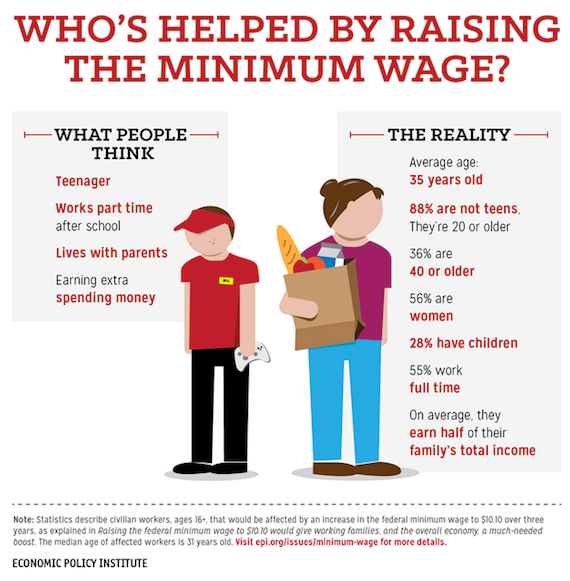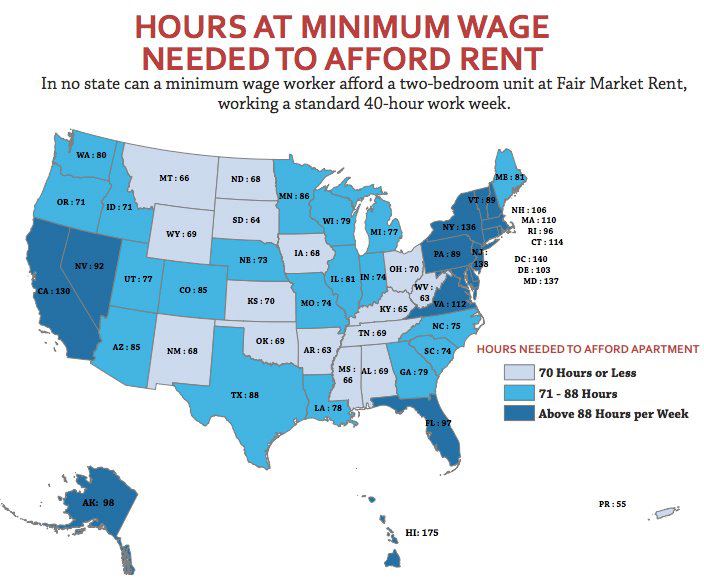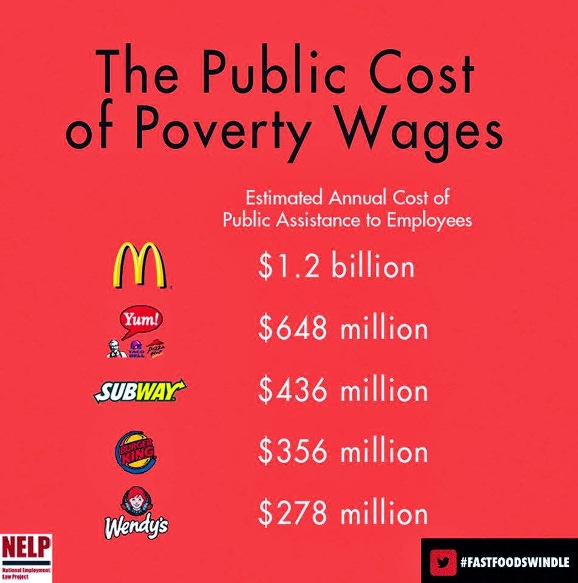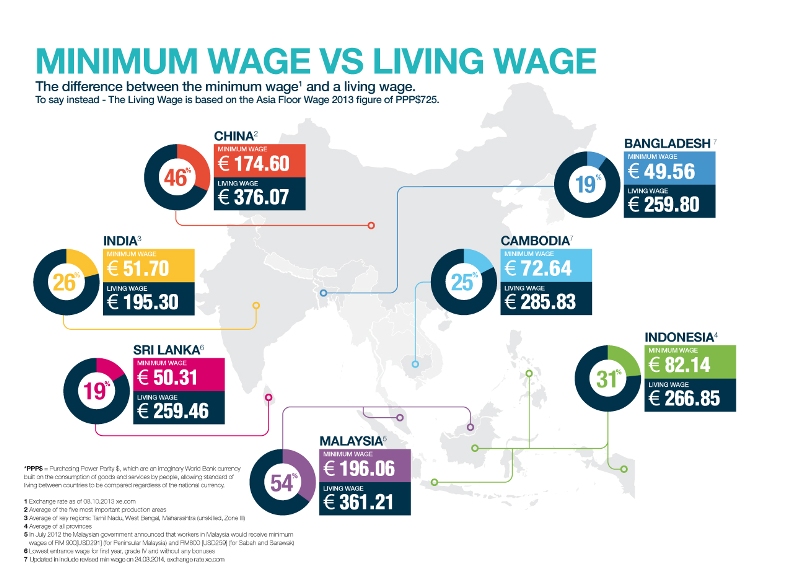Living wage, Living income: Difference between revisions
Siterunner (talk | contribs) No edit summary |
Siterunner (talk | contribs) No edit summary |
||
| Line 169: | Line 169: | ||
[[File:MimimumWageCoststoSociety.jpg]] | [[File:MimimumWageCoststoSociety.jpg]] | ||
○ | |||
[[File:ASIA-Living v Minimum wage MAY 2014.jpg | link=http://www.cleanclothes.org/livingwage/living-wage]] | |||
Revision as of 15:40, 29 January 2015
"No person who works a full-time job should have to live in poverty"
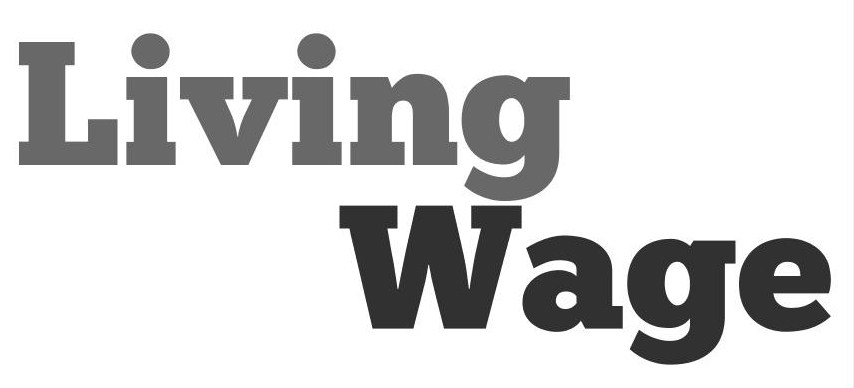
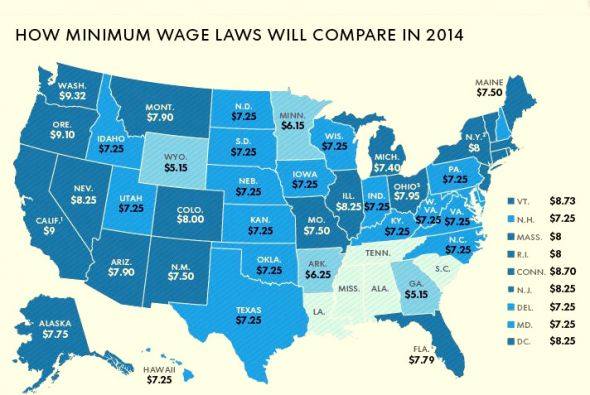
- LIV
Living Incomes Vision Campaign
○
We see Livable wages as Positive for Working Americans and for America
○ ○
- More income brings more prosperity
- More income brings economic growth
○ ○ ○
- More income brings less dependence on government
- More income brings competitiveness, encourages workers & productivity
- More income brings fairness to a system that needs to build the middle class again and compete globally
○ ○ ○ ○
Living Incomes for America
Envisioning Success in Our Workforce
-=-=-=-=-=-=-=-=-=-=-
What is a livable/living wage?
A living wage is defined as the wage that can meet the basic needs to maintain a safe, decent standard of living within the community.
http://en.wikipedia.org/wiki/Living_wage
○
Is a living wage a religious issue?
Yes
http://www.emilytimbol.com/2014/09/the-fight-for-a-living-wage-is-a-christian-issue/
http://www.povertyusa.org/our-mission/pope-francis-on-poverty/
○
What people think about a minimum wage or living wage -- and the reality
-=-=-=-=-=-=-=-=-=-=--=-=-=-=-=-=-=-=-=-=--=-=-=-=-=-=-=-=-=-=-
- Living Wage Calculator
Use the "Living Wage Calculator" to estimate the cost of living in your community/region, state/county/city.
The calculator lists typical expenses, the living wage, and typical wages for your selected location.
http://www.marketplace.org/topics/business/meet-woman-behind-ikeas-living-wage-calculator
http://www.livingwageforfamilies.ca/employers/living-wage-calculator/
-=-=-=-=-=-=-=-=-=-=--=-=-=-=-=-=-=-=-=-=--=-=-=-=-=-=-=-=-=-=-
Raising America’s Pay -- Why It’s Our Central Economic Policy Challenge
http://www.epi.org/publication/safety-net-savings-from-raising-minimum-wage/
The ranks of the working poor now exceed 47 million, driven in part by the steep erosion of wage standards throughout our economy.
Over the last forty years, the real value of the federal minimum wage has fallen by close to 30%... the minimum wage remains far too low to sustain working families.
○
Economic Impact of Local Living Wages
http://www.epi.org/publication/bp170/
○
- Resources
Economic Policy Institute -- Shared Prosperity http://www.epi.org/ -- https://twitter.com/EconomicPolicy
http://www.epi.org/publication/why-americas-workers-need-faster-wage-growth/
http://www.epi.org/publication/safety-net-savings-from-raising-minimum-wage/
§
Living Wage and Minimum Wage -- National Employment Law Project http://www.nelp.org/site/issues/category/living_wage_and_minimum_wage/
http://www.raisetheminimumwage.org/
New Poll Shows Overwhelming Support for Substantial Minimum Wage Increase
January 15, 2015 -- A new poll shows 75% of Americans – including 53% of Republicans – support raising the national minimum wage to $12.50 by 2020
November 2014 -- Voters raise the minimum wage in four states and two major cities http://www.raisetheminimumwage.com/blog/entry/its-a-sweep-voters-raise-the-minimum-wage-in-four-states-and-two-cities/
§
Forbes - April 15, 2014
Report: Walmart Workers Cost Taxpayers $6.2 Billion In Public Assistance
§
US House Committee on Education and the Workforce
The Low-Wage Drag on Our Economy: Wal-Mart’s low wages and their effect on taxpayers and economic growth
○
- Social Media Links
@EconomicPolicy -- https://twitter.com/EconomicPolicy
@equitablegrowth -- https://twitter.com/equitablegrowth
@Living_Cities -- https://twitter.com/Living_Cities
○
○
Fast Food, Poverty Wages, Public Costs
http://laborcenter.berkeley.edu/pdf/2013/fast_food_poverty_wages.pdf
Nearly three-quarters (73 percent) of enrollments in America’s major public benefits programs are from working families.
Many of them work in jobs that pay wages so low that their paychecks do not generate enough income to provide for life’s basic necessities. Low wages paid by employers in the fast-food industry create especially acute problems for the families of workers in this industry. Median pay for core front-line fast-food jobs is $8.69 an hour, with many jobs paying at or near the minimum wage.
Benefits are also scarce for front-line fast-food workers; an estimated 87 percent do not receive health benefits through their employer. The combination of low wages and benefits, often coupled with part-time employment, means that many of the families of fast-food workers must rely on taxpayer-funded safety net programs to make ends meet.
The Fast Food, Poverty Wages Report estimates the public cost of low-wage jobs in the fast-food industry. Medicaid, the Earned Income Tax Credit and the other public benefits programs discussed in this report provide a vital support system for millions of Americans working in the United States’ service industries, including fast food. We analyze public program utilization by working families and estimate total average annual public benefitexpenditures on the families of front-line fast-food workers for the years 2007–2011.
In this analysis the focus is on jobs held by core, front-line fast-food workers, defined as nonmanagerial workers who work at least 11 hours per week for 27 or more weeks per year...
○
